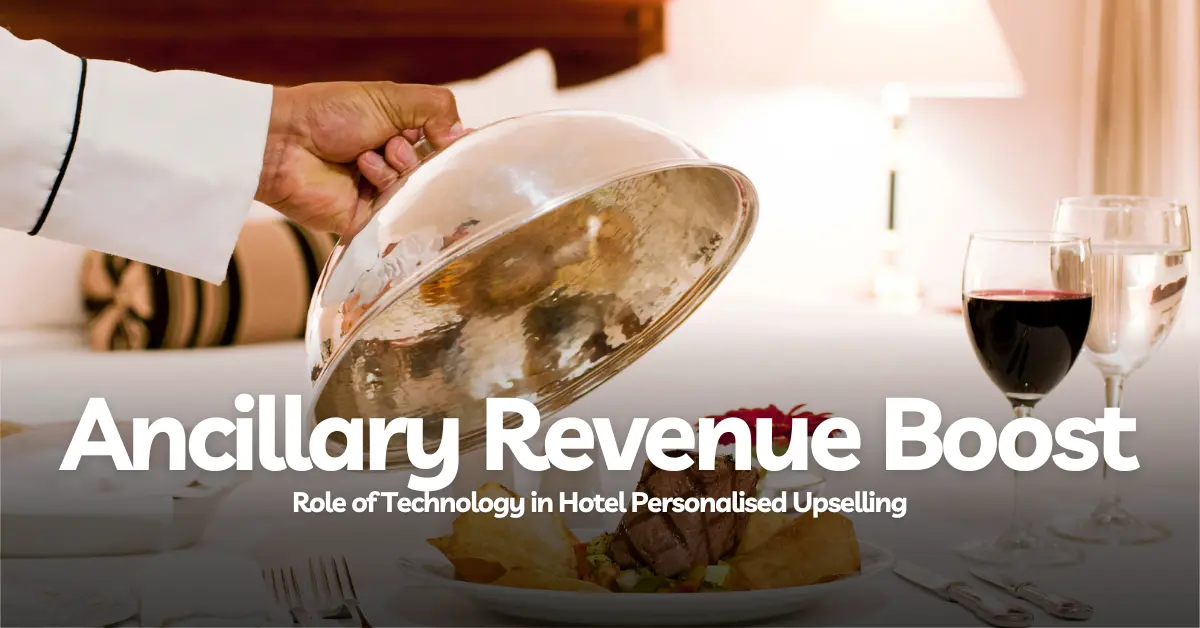In the ever-competitive world of the hospitality industry, managing revenue effectively is paramount to a hotel’s success. One key aspect of this revenue management strategy is converting bookings made through Online Travel Agencies (OTAs) into future direct reservations. In this article, we will explore the tactics and strategies that hotels can employ to increase direct bookings, collect guest information for future marketing, and effectively position the value of booking directly on their website while leveraging OTAs to build an online presence.
The Importance of Direct Bookings
Direct bookings, where guests reserve rooms directly through a hotel’s website or reservation system, offer a range of benefits for both the hotel and the guest. Not only do they provide hotels with a higher profit margin due to the absence of OTA commissions, but they also allow hotels to build lasting relationships with their guests and collect valuable guest data for future marketing efforts.
1. Higher Profit Margin
One of the most apparent advantages of direct bookings is the higher profit margin. When guests book directly through a hotel’s website, the hotel retains the full room rate, without the commission fees typically associated with OTAs. This translates into more revenue for the hotel, which can be reinvested in improving guest services and property enhancements.
2. Guest Data Collection
Direct bookings enable hotels to collect valuable guest data. This data includes contact information, stay preferences, and historical booking data. By building a database of guest information, hotels can develop targeted marketing campaigns, loyalty programmes, and personalised guest experiences. This data-driven approach allows hotels to tailor their offerings to meet the unique needs and preferences of individual guests.
3. Enhanced Guest Experience
Direct bookings also empower hotels to provide a more personalised and engaging guest experience. When guests book directly, hotels can communicate with them directly, understand their needs, and deliver special requests or personalised amenities. This level of customisation enhances the guest’s stay and fosters a sense of loyalty, leading to repeat bookings and positive word-of-mouth referrals.
Converting OTA Bookings to Direct Bookings
To increase direct bookings, hotels can employ a variety of strategies and tactics:
1. Incentives and Promotions
Hotels can offer exclusive incentives and promotions to guests who book directly on their website. This could include discounts, complimentary services, or loyalty programme perks. By highlighting these benefits, hotels can encourage more guests to choose direct bookings.
2. User-Friendly Booking Experience
A user-friendly and intuitive booking experience on the hotel’s website is crucial. Guests should find it easy to navigate, select room options, and complete their reservation. Any obstacles or friction in the booking process should be addressed to ensure a seamless experience.
3. Price Parity
Maintaining price parity between the hotel’s website and OTAs is essential. Guests should not feel that they are paying more by booking directly. However, hotels can still offer added value, such as complimentary breakfast, Wi-Fi, or room upgrades, to make direct bookings more appealing.
4. Showcase Value on the Hotel Website
Hotels can use their websites to showcase the value of booking directly. This includes highlighting the benefits of a personalised experience, the collection of guest data for future visits, and the cost savings associated with avoiding OTA commissions.
5. Seamless Booking and Communication
Hotels should ensure that the booking process on their website is as seamless as possible. Additionally, prompt and clear communication with guests who book directly is vital. This includes sending confirmations, pre-arrival information, and post-stay follow-ups using Guest Engagement automation tools.
Leveraging OTAs to Build an Online Presence
While the goal is to increase direct bookings, OTAs can still play a valuable role in a hotel’s overall revenue strategy. Here’s how hotels can leverage OTAs to build their online presence:
1. Expanding Reach
OTAs have extensive online reach and marketing resources. Hotels can use these platforms to expose their properties to a broader audience. By maintaining a presence on OTAs, hotels can attract new guests who might not have discovered them through other channels.
2. Offering Exposure for Independent Properties
For independent or boutique hotels that may not have the marketing resources of large chains, OTAs offer a cost-effective way to gain exposure. Independent properties can use OTAs to compete with larger brands and reach potential guests from around the world.
3. Collaborative Approach
Hotels can take a collaborative approach with OTAs. Instead of viewing them as competitors, consider them as partners. Work with OTAs to promote special packages, seasonal offers, and promotions that can benefit both parties.
In Conclusion
Converting OTA bookings into direct reservations is a strategic move that benefits both hotels and guests. Direct bookings lead to higher revenue, improved guest experiences, and the collection of valuable guest data for future marketing. To encourage direct bookings, hotels can use incentives, create a user-friendly booking process, maintain price parity, and highlight the value of booking directly.
While the focus is on direct bookings, OTAs still have a role to play in building a hotel’s online presence. By leveraging their reach, properties can attract new guests and compete effectively in a competitive market. The key to success lies in finding a balance between direct and OTA bookings, ensuring that both contribute to the overall growth and success of the hotel.





